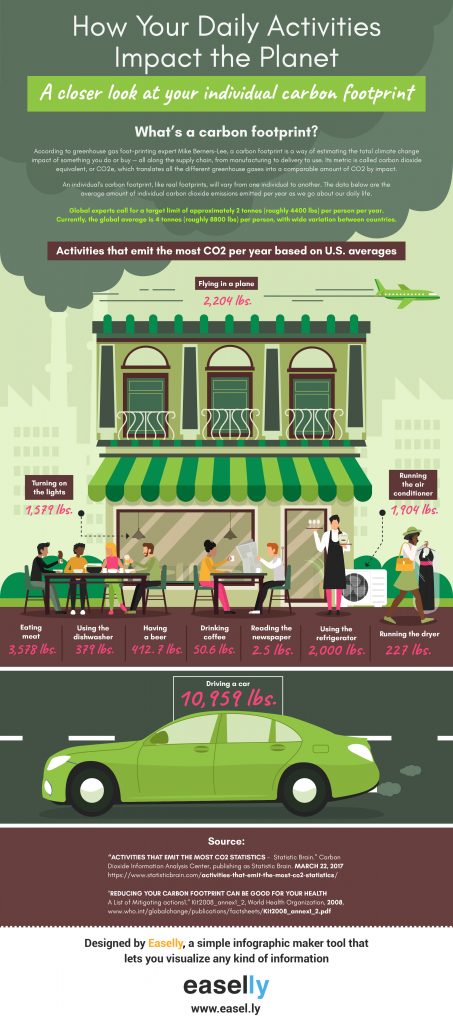Table of Content
I think at some point everyone is guilty of overbuying items, but there are ways to eliminate this from happening as frequently. I know that since having kids; I have over-purchased items to avoid going to the store as often. So many decisions we make in our everyday lives have a major impact on the planet. The average American produces about 4.4 pounds of trash per day. Explore our tips for ways you can make small changes that are eco-friendly and will have a lasting effect on the environment.
Let your food run free and not be constrained to individual wrapping. Be cognizant of the kinds of packaging you’re purchasing, making sure to get resealable products if needed. Moreover, consciously thinking about the implications of buying things before buying them will help reduce waste from products you don’t really need. For instance, buying supplies with little or no packaging significantly reduces single-use wrappers and plastic that ends in your bin.
Avoid single-use food and drink containers and utensils
Another example will be to rent a tent or sleeping bag if you’re planning to go camping. Eco-friendly baby products are guaranteed safe to use for your little angel. As parents, we can relate that baby products are among the top creators of waste at homes. Store and preserve leftover food safely, preferably with eco-friendly food containers. If every person in WA reduced what they discarded by just 5% then we’d be throwing away about 120kg less each every year – or a whopping 300,000 tonnes in total. Push it a bit further and apply it to your clothing and gadget purchases too.

Food waste might seem like something small, but it adds up to a massive… and I mean MASSIVE impact. Food is too good to waste, and yet one third of food produced for human consumption is wasted or lost globally. Northern Nevada has several locations to choose from!
How mission-led teams can reduce waste in digital public services
“My four-year-old feels very grown up using cotton napkins, although a lot of the time his shirt and pants win as the most-used napkin,” she says. Home-cooked meals are not going to happen every night. The reality of family life means you may need to order dinner. But when you opt for takeout, you’re likely to find yourself with an overwhelming amount of plastic containers afterward. When you’re ordering, consider supporting restaurants that use compostable or entirely recyclable containers, and always leave a note that you don’t need cutlery and napkins.

“I know that when we get to the store it’s so easy to get tempted and buy all of the things that look amazing,” says Singer. Paper towels, plastic wrap, paper napkins, sandwich bags, oh my! I now keep a big bowl of clean cloths on the counter that I use a few times, then throw into a laundry bin placed within reach.
Minimalist Meal Planning: Vegan and Easy Meal Prep Ideas
I’m not hoarding food by any stretch of the imagination, but I am buying a little extra food. It’s not just magazine covers that are projecting unrealistic and unattainable versions of beauty – we do it to our produce too. I have read and understand the information concerning personal data and I agree with the Privacy Notice. Only wash clothes in the machine when you have a full load and on a lower temperature setting. Plenty MAX The Extra Big One kitchen paper is super strong when wet, so you only need to use a small amount to get a big job done.

Buy energy efficient items with the ENERGY STAR ® logo or items that are EPEAT registered for the office. Instead of printing hard copies of your documents, save them to your hard drive or email them to yourself to save paper. Have a yard sale to find homes for clothes, toys, appliances, and books that you no longer need. Raise the cutting height of your lawnmower during hot summer months to keep grass roots shaded and cooler, reducing weed growth, browning, and the need for watering.
ways to reduce waste at home
The compost you make can be used around your garden to provide plants with nutrients they need to thrive, or used for your house plants. I'm Juliet, and I hope that you are enjoying the experience while finding some helpful tips and a few new must-haves for your cupboards along the way. Whatever role you fill each day, start with making the bed. I am telling you, life can be extremely challenging at times, but no matter what happens each day, I make the bed.

Whenever possible, try to avoid single-use coffee cups, disposable utensils, straws and napkins. Some businesses will even give you a discount on your coffee for bringing your own mug. Keep a set of silverware at work along with a plate, bowl and cup that you can wash and reuse.
As long as the materials are 100% cotton, wool, silk or linen, you can cut the clothing into small pieces and add them to your compost pile. Individually portioned snacks are SO easy to just toss in a lunch box, but not so great for the environment. I totally get it – if my kids were in school, I would be tempted to pre-packaged individual snacks.

So technically speaking, your organic kitchen waste are not wasted. And if you don’t want to spend money on something you only need for a limited time, try borrowing from your relatives and friends. And as you already know, wasted electricity is wasted money and resources.
It’s best to limit these kind of events and stick to the plan of buying what you need. You then won’t have to worry about clutter and pitching items you never used. Pretending to like them enough to borrow their tools is another. Sharing sparingly used tools between neighbors helps reduce energy and fuel waste at home. This strategy can also help you save space in your shed or garage and allow you to save a significant amount of money. Reducing waste at home starts and ends in your mailbox.

Besides checking your fridge and pantry, try to create a meal plan each week. Of course, there are going to be things that come up during the week, but a meal plan definitely helps over purchasing and therefore wasting food. For glass and plastic food storage options, check out this post. Making better choices about what you use and how you’ll throw it away isn’t a simple checklist.
Enter your invoices' due date on your online calendar or set up automated payments so you don't have to worry about missing a payment. Donate it to a local charity, put it on the curb with a "free" sign on it, or post an online ad to sell it or give it away. Some donation centres even offer pickup services for used furniture. Our mission-led structure has provided a significant boost to that culture in its own right. It has helped us to give people more purpose, drive improved outcomes and increase employee engagement. My job, along with the rest of my leadership team, is to provide coaching, mentoring and support that the teams need to flourish in that environment and achieve their objectives.
Clothes shopping is an important part of back-to-school shopping and kids grow so fast. Think about what clothes you can buy second-hand which is significantly more affordable and eco-friend. You can get a reusable shopping bag that you can also use when buying clothes, accessories, and other life necessities. Any busy person can still reduce plastic waste by switching to zero waste personal care products.

No comments:
Post a Comment